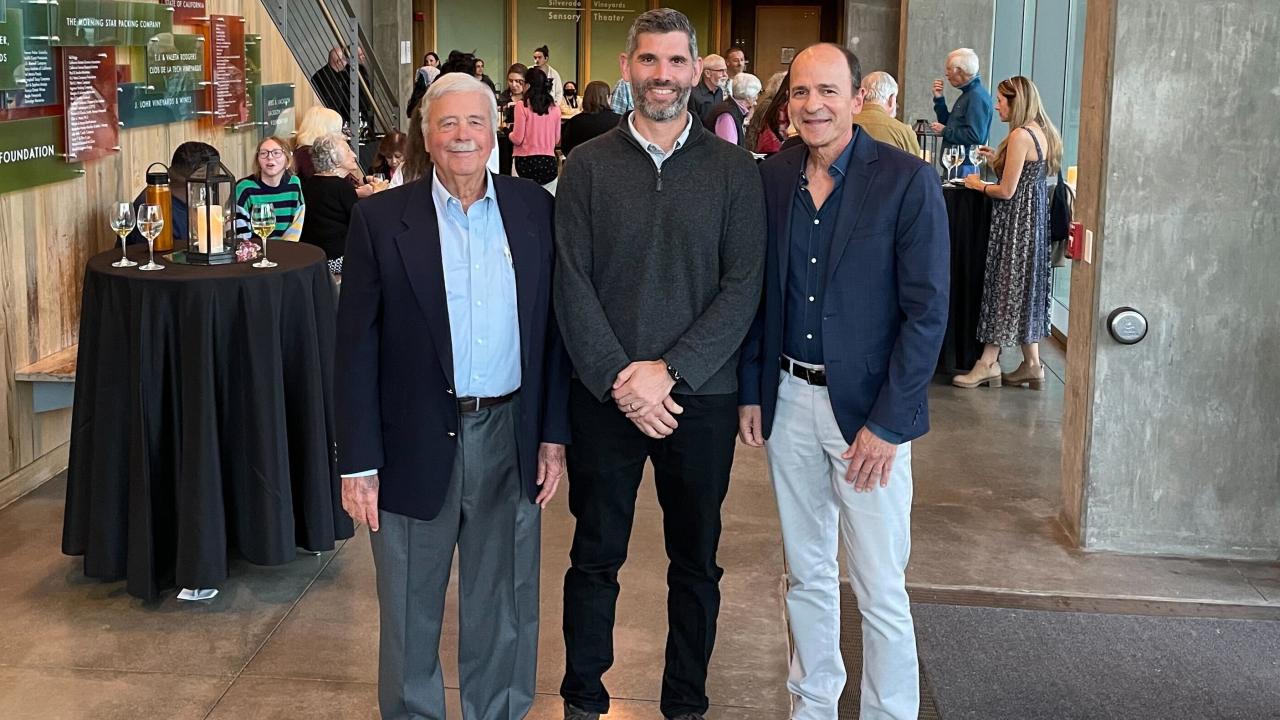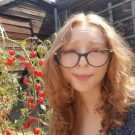
Navigating the "No Safe Level" Debate: Insights from Ed Matovcik
On October 22, 2024, Ed Matovcik, Vice President of Public Affairs at Constellation Brands (owner of well-known wineries like Robert Mondavi Winery and Opus One), spoke at the Robert Mondavi Institute for Wine and Food Science about the ongoing debate about alcohol and its health effects. With decades of experience advocating for the wine industry in both Washington, D.C. and Napa, Matovcik is deeply involved in various organizations that support the wine industry and those who work in wine.
During his lecture, Matovcik shared his perspective on the World Health Organization’s recent declaration that there is no safe level of alcohol to consume and explored how changing views on alcohol influence the wine industry, public health policies, and consumer choices. Matovcik made it clear that the views he expressed were his own, not those of Constellation or any of the boards he serves on.
Matovcik started by sharing two videos that show how views on alcohol have shifted. The first, from 1991, highlighted the “French Paradox,” which suggests that moderate wine drinking could benefit heart health. The second was a more recent ad, “Rethink the Drink,” which warns that any amount of alcohol might harm health.
This shift in perspective has led to trends like Dry January and Sober October, where many people, especially younger generations, drink less. Matovcik pointed out several factors contributing to this change. New drugs like Ozempic reduce people’s interest in alcohol, and others turn to cannabis or mushroom drinks as alternatives. Health-tracking devices can also show that alcohol can disrupt sleep and heart health, leading some people to reconsider drinking altogether.
In 2023, the World Health Organization (WHO) declared that no amount of alcohol is safe. This position is known as the “no safe level” approach. This stance is influencing policies around the globe. In the United States., groups like the Interagency Coordinating Committee on the Prevention of Underage Drinking (ICPUD) and Movendi International push for stricter alcohol regulations. Matovcik noted that ICPUD is linked to Movendi International, a group that has long advocated for total abstinence from alcohol,l including the original prohibition movement of the 1920s.
He also mentioned that ICPUD has faced criticism from Congress about publishing its studies without fully disclosing itst funding sources, raising concerns about transparency and potential influences. A congressional committee is expected to release its recommendations on alcohol policy by the end of this year. This could offer a more balanced view of alcohol’s role in society and potentially how the alcohol industry is regulated and how public health messages are delivered.
In light of these discussions, Matovcik shared a quote from Robert Mondavi to highlight how wine plays a vital role in bringing people together. Mondavi’s perspective emphasizes wine’s cultural and social importance beyond just its health effects:
“We believe wine is the temperate, civilized, sacred, romantic mealtime beverage recommended by the Bible. It is a liquid food that has been part of civilization for 8,000 years. Wine has been praised for centuries by statesmen, scholars, poets, and philosophers. It has been used as a religious sacrament, as the primary beverage of choice for food, and as a source of pleasure and diversion. Wine is the natural beverage for every celebration: the birth of a child, graduations, engagements, weddings, anniversaries, promotions, family gatherings, toasts between governments, and other festivities.” - Robert Mondavi, 1989 Forward of “Plain Talk About Fine Wine” by Silver Oak Cellars Founder and Winemaker Justin Meyer
The “Mondavi argument” doesn’t make health claims about wine, it simply values wine as a tradition that brings people together and celebrates its cultural significance. Mondavi emphasized that when consumed responsibly, wine plays an important role in bringing people together, marking milestones, and fostering social connection.
Matovcik wrapped up by emphasizing that the conversation around alcohol and health is complicated and that new policies should be based on fair, scientifically rigorous research. He said that while some studies suggest the benefits of moderate drinking, others suggest its potential harms. Matovcik stressed the importance of balanced research to help people make informed decisions. Matovcik also highlighted that the wine industry remains open to new research on alcohol and health but noted a crucial limitation: current laws don’t allow wineries to talk about any potential health benefits of wine. This makes it tricky for the industry to engage with shifting health trends and public conversations.
This event shed light on the challenges of understanding new health trends and what they mean for an industry rooted in history and tradition. For those interested in exploring this complex issue further, watching the entire talk is a great way to gain more insight and explore how public health, personal choices, and cultural traditions can impact the wine industry.

Kaylianne Jordan is a junior transfer student studying Viticulture and Enology at UC Davis. She has a background in culinary arts and a passion for sustainable farming and enjoys exploring the connections between agriculture, winemaking, and community. Outside of college, she loves trying out new recipes, discovering local food spots, and spending time with friends in the outdoors.
